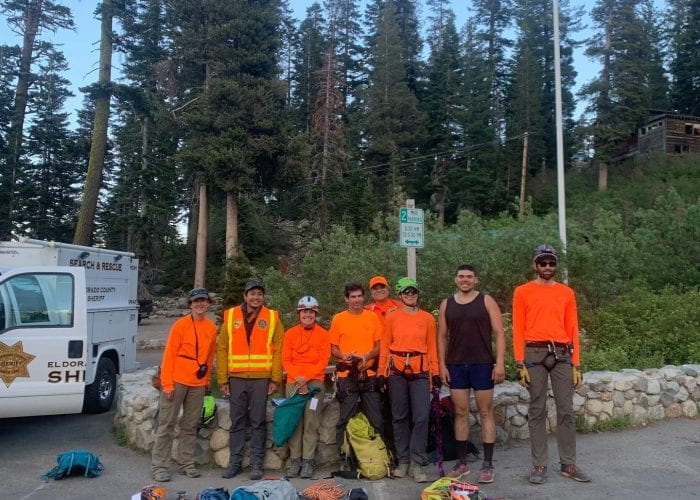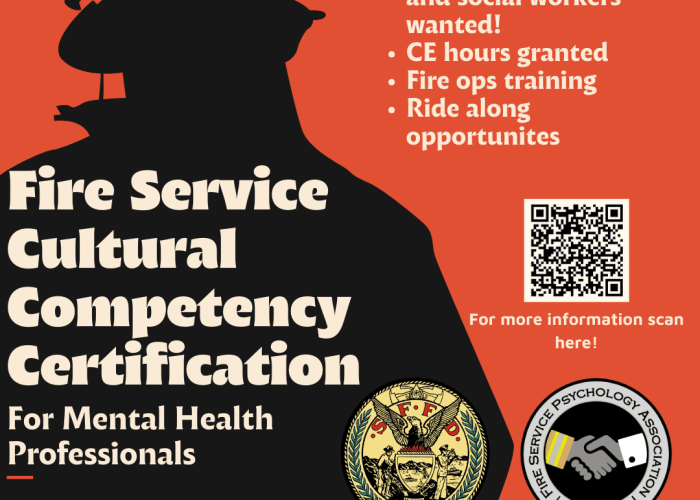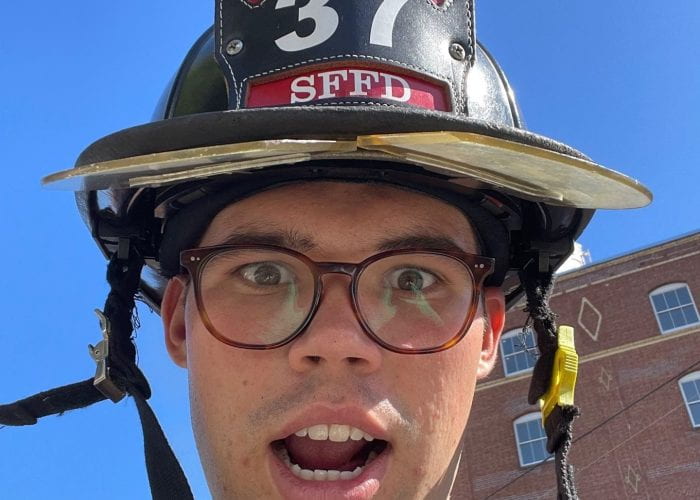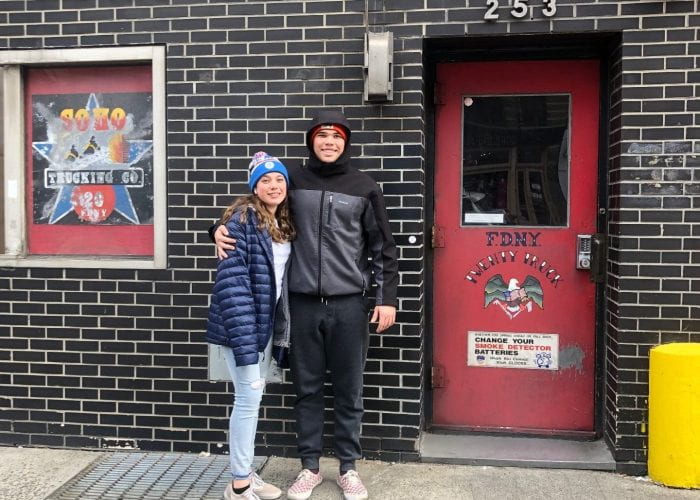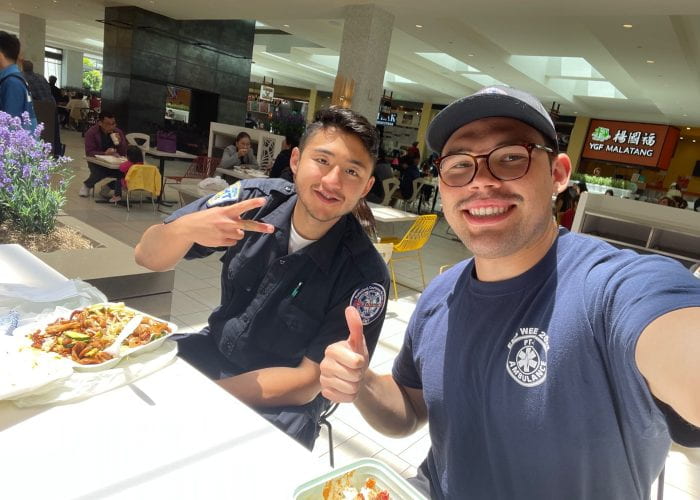
Beyond the Flames: Mental Health Equity in the SFFD
In this insightful journey, Evan Cajigas ’24, Finance, combines academic ambitions with a passion for joining San Francisco’s Fire Department. Assigned to the Behavioral Health Unit, Evan learns and navigates the challenges to address the department’s mental health needs. Through trials and revelations, his story illuminates the complexities of public service and the pursuit of fostering a supportive environment.
During my junior year at the University of San Francisco, I worked as an EMT on weekends while pursuing a finance degree. I set my sights on joining the San Francisco Fire Department (SFFD). I love the city and want to serve the community that I live in. The SFFD offered it all— the excitement of fire fighting, medical calls, search and rescue, and everything in between. I wanted to combine my college academics and my side job, which is how I found out about the McCarthy Center. The McCarthy Fellows in SF sounded like the perfect fit for me. I saw my own life goals reflecting the McCarthy Center’s vision of equity and contributing to the creation of just, social and economic structures that respect and incorporate the needs of all.
Luckily a spot was open for me, and better yet, Captain Heather Buren head pf the department’s Behavioral Health Unit (BHU) had requested an intern. I was ecstatic. The BHU is responsible for assisting current, former, and family members of the department by connecting them to mental health resources. This ranges from peer support, incident debriefs, referrals to professional service, and so much more. I joined a team led by Captain Buren with Firefighter Nelson and Paramedic Greene at the Old Chiefs Residence in downtown San Francisco. Together these women had almost 50 years of EMS experience between them, and each of them saw the desperate need for mental health support within the department. My main project was to recruit mental health professionals to participate in culturally competent clinician training led by the SFFD and a fire psychology non-profit. I needed to find 10-15 clinicians (psychologists, marriage and family counselors, licensed professional counselors, social workers, etc) who would sign up for two days of class and field training as well as 40 hours of ride-along time with SFFD stations. These clinicians would be trained specifically to learn about the fire service in hopes of being better acclimated to SFFD members who needed therapy.
There were many challenges: my relatively small knowledge of the mental health field, no previous blueprint to use, and limited time, among other factors. As I soon learned, mental health clinicians with the appropriate qualifications are extremely hard to find. I reached out to countless clinical university programs for any applicants but to no avail. I called and emailed over 30 local clinicians, with little luck. My best breaks came by word of mouth. I met an amazing clinician named Brad by complete chance while getting a training session at Ralph Gracie Jiu-Jitsu. He introduced us to more clinicians who would help, but we soon realized this program was not going to succeed. There were too many obstacles. The pay was far under the market rate, training was time consuming, and there were just not enough clinicians available who met our qualifications. Unfortunately my project task was not successful, but the takeaways that we learned were just as important. We found structured recruitment was needed, and the training would have to be minimal and the clinicians should already know how to heal trauma. We needed to create a wider network of clinicians like Brad to spread the word. We now have a blueprint for the next time the BHU tries to recruit clinicians, and now know what works and what doesn’t.
Along with this main project, I also did frequent ride-alongs with various stations and ambulances across the city to learn about each station’s particular culture. Beyond getting 911 experience, I also got to learn how SFFD members felt about the BHU. Many saw the vast benefits of offering mental health support. On the other hand, I also talked to longtime members who were less than enthusiastic about the BHU. They saw mental health as a weakness, and weakness is not allowed in the fire service. They echoed the long-held ideas about firefighters…bottle it up and don’t talk about it. While hearing this was confusing to me, it was important nonetheless. To create a culture of mental health support, it takes a whole department. Understanding why these members don’t agree with the BHU is how we adapt and find other ways to support the SFFD.
Captain Buren has been an incredible role model for me. She worked her way up through the ranks and fought every step of the way for female representation. A quote that has stuck with me that she mentioned was one by the late Ruth Bader Ginsburg, “I ask no favor for my sex. All I ask of our brethren is that they take their feet off our necks”. The McCarthy Program asks its students to create equity within government, and I am so thankful to have Captain Buren as an example of what this looks like. I’m excited to continue my academic and professional career and hopefully join the ranks of San Francisco’s bravest.
Learn more about becoming a McCarthy Fellow in San Francisco Fellow

